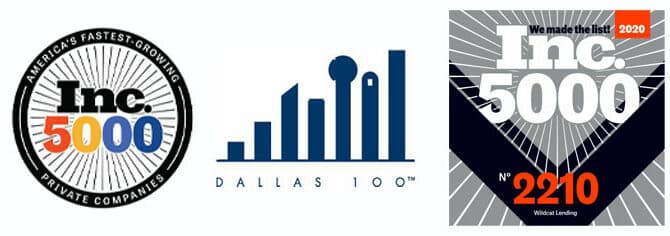Choosing the right hard money loan terms can make or break a real estate investment, especially in a vibrant market like Houston, TX. With increasing property values, high demand, and plenty of opportunities, Houston’s real estate scene is full of potential. However, traditional financing options may not always be ideal for investors looking to secure property quickly or take on projects that require unique financing solutions. Hard money loans offer a viable alternative, especially for those needing speed, flexibility, and creative financing options tailored to real estate projects.
In this guide, we’ll examine key considerations when selecting hard money loan terms in Houston, TX. We’ll discuss what to look for in interest rates, loan-to-value (LTV) ratios, loan terms, fees, and other factors that impact profitability and ease of repayment.
Understanding Hard Money Loans in Houston
Hard money loans are short-term, asset-based loans used primarily by real estate investors to finance purchases, rehabs, and other projects where traditional loans may not apply. These loans are secured by real estate, with the property’s current or projected value being a primary consideration for approval. In Houston, where demand for properties is high and investors often need quick access to capital, hard money loans provide a strategic advantage.
Because hard money loans prioritize the asset over the borrower’s credit, they offer unique terms compared to conventional mortgages. Here’s a closer look at the most critical terms to consider.
1. Interest Rates and Payment Structure
Interest rates for hard money loans are typically higher than traditional mortgages because they carry higher risk. Rates can range from 8% to 15%, depending on the lender, loan terms, and borrower experience. However, in a competitive market like Houston, the flexibility and speed these loans offer can outweigh the cost.
- Monthly Payments: Many hard money loans come with interest-only payments, meaning borrowers pay only the interest each month, with the principal due at the end of the term. This structure keeps monthly payments low, freeing up cash flow for renovations or other expenses.
- Fixed vs. Adjustable Rates: In general, most hard money loans have fixed interest rates, offering predictability throughout the loan term. Fixed rates are often preferable for short-term projects like fix-and-flip properties since the borrower knows exactly what they’ll pay each month.
2. Loan-to-Value (LTV) Ratio
The Loan-to-Value (LTV) ratio reflects the loan amount as a percentage of the property’s appraised value or purchase price, whichever is lower. In Houston’s competitive market, a high LTV ratio can be attractive, especially for investors who need more upfront funding to acquire and renovate properties.
- Standard LTV Ratios: LTV ratios for hard money loans typically fall between 60% and 75%, although some lenders may offer up to 85% in certain cases. A higher LTV can reduce the amount of cash you need upfront, making it easier to get into a property quickly.
- LTV and Risk: Keep in mind that a high LTV ratio can increase risk for both the borrower and lender. If the property doesn’t appreciate or sell for as much as anticipated, the borrower may owe more than the property’s value. However, in a market with rising property values like Houston, the risk is often balanced by the potential for profit.
3. After-Repair Value (ARV) Financing
Another approach commonly used in hard money lending is After-Repair Value (ARV) financing. ARV financing is based on the projected value of a property after renovations are complete. This financing model is particularly useful for fix-and-flip projects, where the property’s final value post-renovation is expected to be much higher than its purchase price.
- ARV as a Financing Tool: Some lenders may provide loans up to 70% of the ARV, which can cover a significant portion of both purchase and renovation costs. This financing method is ideal for investors looking to maximize their returns by improving property values in Houston’s growing neighborhoods.
- Calculating ARV: To make ARV financing work, you’ll need a reliable estimate of renovation costs and a clear vision of the property’s potential market value. Working with an experienced lender like Wildcat Lending can help ensure your ARV financing aligns with realistic expectations.
4. Loan Term Length and Exit Strategy
Hard money loans are usually short-term, lasting from six months to a few years. The goal is to help investors acquire, improve, and either sell or refinance properties quickly. In Houston, where property demand is strong, these short loan terms are well-suited for flipping properties or preparing rentals.
- Common Loan Terms: Loan terms of 6 to 12 months are typical, but lenders may offer terms of up to 24 or even 36 months for more complex projects or experienced borrowers.
- Exit Strategy Planning: With short-term loans, an exit strategy is essential. Whether your plan is to sell, refinance, or transition the property to a rental, knowing your next steps helps avoid unnecessary fees and ensures you make the most of your loan terms.
5. Origination Fees and Other Costs
Origination fees, or points, are the upfront costs you pay to secure a loan. These fees generally range from 1% to 3% of the loan amount, with each point representing 1%. It’s important to weigh these fees against the loan’s other terms to determine if the overall cost aligns with your budget and project expectations.
- Consider All Fees: Hard money loans may also come with processing fees, underwriting fees, and other administrative costs. While these fees are often higher than conventional loan fees, the speed and flexibility of hard money loans often offset the additional costs.
- No Hidden Fees: A transparent lender will outline all fees upfront so you know exactly what to expect. Working with Wildcat Lending ensures there are no surprises, helping you make informed financial decisions.
6. Collateral and Recourse Terms
Because hard money loans are secured by real estate, the property acts as collateral. However, the terms of collateral and recourse vary. Understanding whether your loan is recourse or non-recourse can help you assess your level of risk.
- Recourse Loans: In a recourse loan, the lender can pursue additional assets if the borrower defaults and the property doesn’t cover the loan balance. These loans are more common and typically have lower interest rates since they reduce risk for the lender.
- Non-Recourse Loans: With non-recourse loans, the lender cannot pursue the borrower’s other assets beyond the collateral property. These loans often have higher interest rates but offer more protection for the borrower’s assets.
7. Rehab Financing and Draw Schedules
For investors working on properties that require significant renovations, rehab financing and draw schedules are important aspects of hard money loans. A draw schedule outlines when funds will be released to cover renovation costs, helping manage cash flow throughout the project.
- Flexible Draw Schedules: A lender like Wildcat Lending will work with you to establish a draw schedule that aligns with your renovation timeline. For example, funds might be disbursed after completing major phases like demolition, framing, and finishing.
- Clear Expectations for Rehab Projects: With the right draw schedule, you can avoid project delays and ensure you have the capital needed at each stage of the renovation. In Houston’s fast-moving market, this flexibility is crucial for staying on track and meeting deadlines.
8. Choosing the Right Lender for Houston Real Estate
Choosing the right lender goes beyond comparing interest rates and fees. It’s essential to work with a lender who understands the unique dynamics of Houston’s real estate market, including the local regulations, property values, and demand fluctuations.
- Local Expertise: A Houston-based lender like Wildcat Lending offers valuable insights into market trends, helping you structure your loan terms to maximize profits.
- Reliability and Speed: In a competitive market, reliability and prompt funding can be the difference between securing a property and missing out. Wildcat Lending is known for closing loans on time, ensuring you can act quickly.
When it comes to choosing the right hard money loan terms for your Houston real estate investments, partner with a lender who understands the market and puts your success first. Contact Wildcat Lending today at [phone] to explore the best loan options and terms for your next project in Houston.



